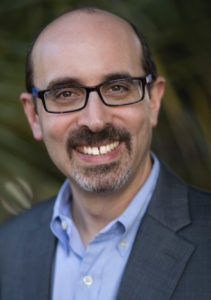“How We Age” is Dr. Marc E. Agronin’s memoir about his exposure to aging and death, primarily through his medical practice at a Miami nursing home many call “God’s waiting room.” Through interviews with his patients, personal anecdotes, and expert medical insight, Marc Agronin delivers a deeply sensitive and hopeful treatise on the condition of ageing. The Internet Review of Books names Agronin “the doctor we should all wish for when we find ourselves in that late stage of life.”
Dr. Agronin graciously agreed to share his wisdom with SevenPonds! Below, read his eloquent advice about aging, caregiving, and death.
 Aurora: The average age of your patients is 90… What do we have to look forward to?
Aurora: The average age of your patients is 90… What do we have to look forward to?
Dr. Agronin: Aging is inescapable, and the experience is unpredictable in many ways. Yet we still have the opportunity to shape it in ways to maximize health and to promote the many potentials we gain in terms of meaningful activities and pursuits. Barring serious memory problems, we will gain, with age, increased knowledge, experience, wisdom, emotional maturity and for some, enhanced creativity and spirituality. We may gain a deeper understanding of life where death is less an issue but the importance and joy of daily relationships takes precedence. But this is where younger generations must step up and get vitally involved with elders. Each generation can offer untold gifts to the other.
Aurora: Why do you think the aging process is so misunderstood?
Dr. Agronin: Much of the script of “old age” is written by younger individuals who project their own fears of death and infirmity onto the aged. It’s a little like an 18 year-old trying to imagine what it’s like to be 50 minus all of the youthful attributes we so prize as teenagers. In addition, scientists have only recently begun to understand some of the physiological aspects of aging, so even for the most sophisticated among us there is much to learn. In terms of the experience of aging itself, we have to let our elders define it for themselves.
Aurora: What advice do you have for caregivers?
Dr. Agronin: Educate yourself about the underlying condition of the person you are caring for. Foster good communication with the health care professionals also involved in care. Be persistent and hopeful, but also realistic in expectations. Make time for yourself and take care of your physical and mental health. Get help when you feel depressed. And finally, build a small community of family and friends to help out. Don’t be shy about engaging many of the wonderful community agencies in this process.
Aurora: And how can we age well ourselves, at any age?
Dr. Agronin: On my website I provide my top ten tips for aging well, which basically revolve around maintaining optimal physical and mental health, staying mentally and socially active, and making time for meaningful pursuits. There is no magic pill or formula here; just the tried and true aspects of healthy lifestyles that we already know about.
Aurora: How do death and the dying process fit into your optimistic understanding of old age?
Dr. Agronin: We can’t make “old age” synonymous with “death.” Although death is much closer when you are older, the aging process is about living and growing as much as it is about adapting to change and even preparing for the approaching horizon. But that preparation is mostly about facing some age-associated limitations, and not primarily about dying.
Aurora: Thank you so much for your perspective, Marc!

 An Interview with Dr. Marc E. Agronin
An Interview with Dr. Marc E. Agronin


 First the Wealth Gap, Now the U.S. Has a Growing Health Gap
First the Wealth Gap, Now the U.S. Has a Growing Health Gap

 Our Annual Seven Holiday Gifts for Someone Who Is Grieving, 2024 Edition
Our Annual Seven Holiday Gifts for Someone Who Is Grieving, 2024 Edition














